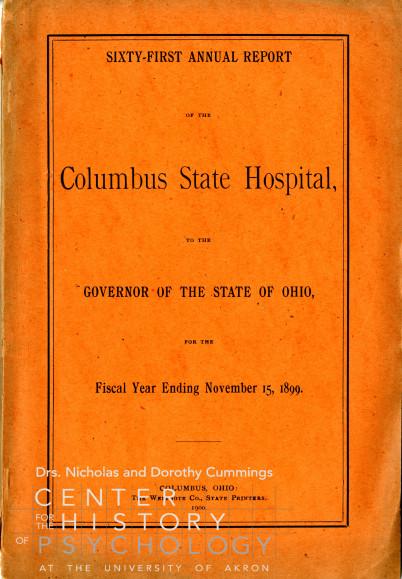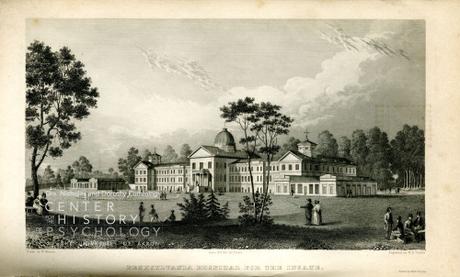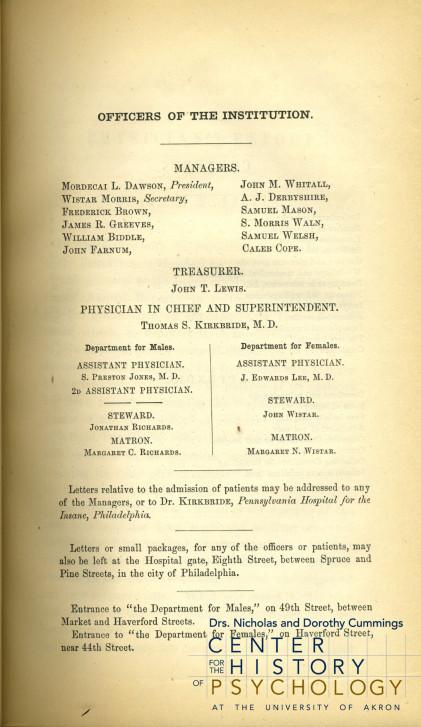-contributed by student assistant Anthony Pankuch.
The complete Cushing Memorial Library Collection of Asylum Reports is now available through the Cummings Center online database. The collection includes over 400 reports from asylums throughout 32 U.S. states and dating back to as early as 1832. These reports are open to the public and viewable in their entirety.

Reports cover asylums across 32 states, reflecting treatment practices in all regions of the United States.
These reports contain financial records, floor plans, patient intake statistics, and day-to-day details from asylums throughout the nation. They provide information on the historic classifications of diseases and their treatment, from melancholy to mania to nostalgia. They are a vital resource for scholars of institutional care throughout the 19th and early 20th centuries, as well as for anyone with an interest in the history of psychology, psychiatry, and medicine.

Many reports include illustrations of the interiors and exteriors of these institutions, along with floor plans and architectural information.
Of particular interest are the reports of the Pennsylvania Hospital for the Insane, which were written by the noted physician Dr. Thomas Kirkbride. Kirkbride was the founder of the Association of Medical Superintendents of American Institutions for the Insane (precursor to the modern American Psychiatric Association) and the creator of the “Kirkbride Plan” of asylum architecture. Kirkbride served as superintendent of the Pennsylvania Hospital for the Insane from 1840 to 1883. The collection contains 18 reports from Kirkbride’s time as head of the institution.

Reports include information on the primary staff members of institutions, patient statistics, and more.
The collection was donated as a permanent loan to the Cummings Center from the Cushing Memorial Library at Texas A&M University, facilitated by Dr. Ludy T. Benjamin, Jr. It was digitized and uploaded to the online database over the course of one year by student assistants Emma Grosjean and Anthony Pankuch. Excluded from the online database are several reports still in need of archival repair. Aside from these documents, the complete collection is now available for public access.
